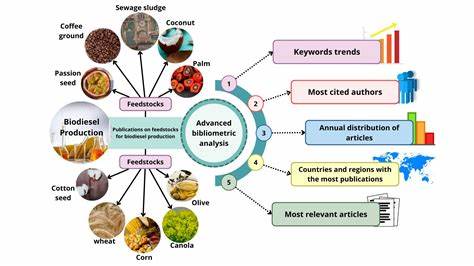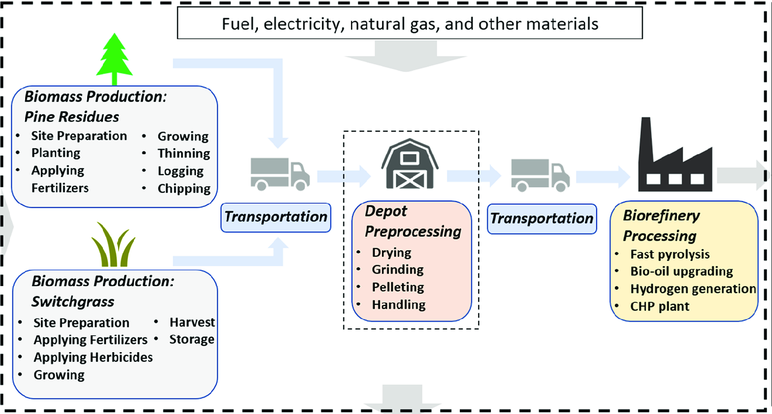
Introduction
Biofuel production is a rapidly growing industry that plays a crucial role in achieving sustainable energy goals. Feedstocks, the raw materials used to produce biofuels, are a fundamental component of this process. In this article, we will explore the importance of feedstock selection and quality in biofuel production and discuss the historical background of biofuel production.
Historical Background
Biofuel production has a long history, dating back to ancient civilizations that utilized biomass for heating and cooking purposes. In more recent times, the focus has shifted towards utilizing biofuels as a renewable energy source. Over the years, the types of feedstocks used in biofuel production have evolved, driven by advancements in technology and a growing understanding of sustainability.
Key Concepts and Definitions
To understand the role of feedstocks in biofuel production, it is essential to define biofuels and feedstocks. Biofuels are fuels derived from renewable sources, such as crops, algae, and agricultural residues. Feedstocks refer to the raw materials used to produce biofuels. The selection and quality of feedstocks are crucial factors in ensuring optimal biofuel production.

Main Discussion Points
Importance of Feedstock Selection
Choosing the right feedstocks is critical for successful biofuel production. Factors such as availability, sustainability, and cost need to be considered when selecting feedstocks. Different feedstocks have varying suitability for different types of biofuels. Additionally, the characteristics of feedstocks can significantly impact biofuel production efficiency and environmental sustainability.
Feedstock Conversion Technologies
There are various conversion technologies available for turning feedstocks into biofuels, including fermentation, pyrolysis, and gasification. The properties of feedstocks influence the choice of conversion technology. Successful feedstock conversion processes have a significant impact on biofuel production, increasing efficiency and reducing environmental impacts.
Feedstock Availability and Supply Chain
Sourcing feedstocks for biofuel production can present challenges and opportunities. It is essential to develop sustainable feedstock production and supply chain management practices. Case studies of regions or countries with successful feedstock supply chains can provide valuable insights into best practices.

Case Studies or Examples
Real-world examples and case studies showcase the successful utilization of specific feedstocks in biofuel production. These examples highlight the impact of different feedstock choices on biofuel production outcomes, including production efficiency, environmental sustainability, and economic viability.
Current Trends or Developments
The field of feedstock utilization for biofuel production is constantly evolving. Recent trends include the exploration of alternative feedstocks, such as waste materials, and the integration of advanced technologies like genetic engineering and biotechnology. Research findings related to feedstock selection and conversion technologies contribute to the advancement of the industry.
Challenges or Controversies
Feedstock availability, sustainability, and cost present ongoing challenges in the biofuel industry. Additionally, controversies and differing viewpoints surround the use of certain feedstocks, particularly those that compete with food production or have extensive land-use requirements. These challenges and controversies must be addressed to ensure the long-term sustainability of biofuel production.

Future Outlook
Looking ahead, the future of feedstock utilization in biofuel production holds promising implications. Advancements in feedstock production and conversion technologies are expected to enhance efficiency and reduce costs. Additionally, the integration of sustainable practices and the development of novel feedstock sources have the potential to revolutionize the industry.
Conclusion
In conclusion, feedstocks play a crucial role in biofuel production. Selecting the right feedstocks and ensuring their quality are vital for achieving sustainable energy goals. By understanding the historical background, key concepts, and main discussion points of feedstock utilization, we can drive the industry towards a more sustainable and efficient future.




